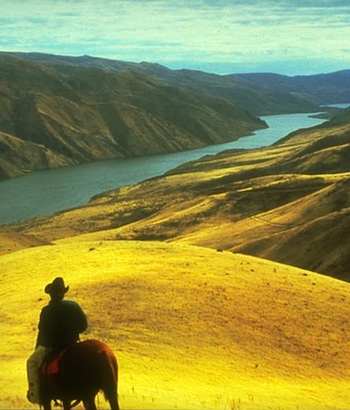 The 10th Circuit Federal Court of Appeals last week rejected a challenge by the energy industry attempting to force the Secretary of the Interior to issue oil and gas leases on public lands in Utah and Wyoming.
The 10th Circuit Federal Court of Appeals last week rejected a challenge by the energy industry attempting to force the Secretary of the Interior to issue oil and gas leases on public lands in Utah and Wyoming.
The Interior Department declined to issue the leases after it found that that its Bureau of Land Management had not fully complied with laws and policies designed to protect sensitive resources like sage grouse and wilderness values.
The ruling upholds Secretary of the Interior Ken Salazar’s decision to consider impacts to land, water quality, air quality and wildlife. “The district court recognized that the Interior Department, not the energy industry, holds the reins when it comes to deciding whether and how much to drill on public lands. Where the lands are scenic wonders with ecological value, the Secretary has the full authority to just say no,” said Melanie Kay, the Earthjustice attorney for the conservation groups who intervened in the case to defend the Secretary’s decision.
“The oil and gas industry sued to try to force the government to sign over oil and gas leases to some sensitive natural lands before formal citizen protests had been dealt with,” said Erik Molvar, Wildlife Biologist with Biodiversity Conservation Alliance. “But the court ruled against them, because they didn’t wait until a final agency decision was made before going to court. The new leasing reforms put in place under the Obama administration not only require the federal government to take a hard look at impacts to lands that might be leased, but also require all protests to be resolved before the auction, so these kinds of delays don’t happen anymore.”
“This ruling maintains the opportunity for public engagement on the use of our cherished public lands,” said Brian Rutledge of the National Audubon Society.
(Source: Earth Justice)



















